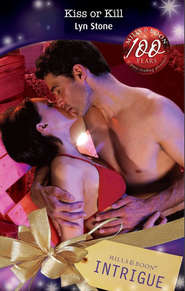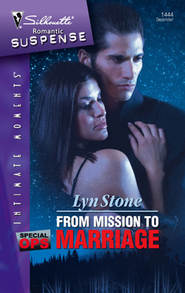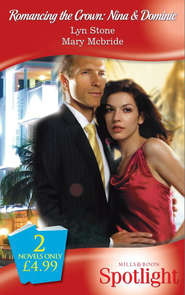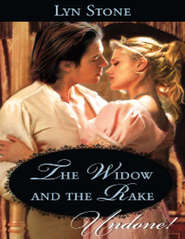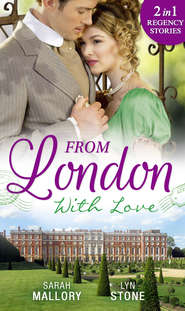По всем вопросам обращайтесь на: info@litportal.ru
(©) 2003-2025.
✖
The Arrangement
Настройки чтения
Размер шрифта
Высота строк
Поля
He submerged his head and came up shuddering. When he cleared his eyes, a long-haired tortoiseshell feline greeted him with a perfunctory growl and an angry green glare.
“Dagnabbit, I just fed you not two hours ago. God knows there’s enough four-legged food in the house to keep you busy if you weren’t so damned lazy.” He slung a spray of water in the cat’s direction. “Get out of here or I’ll give you a bath. And it’s bloody well cold, I can tell you!” Jon rose and grabbed for the still-damp toweling draped over a rickety chair.
When he was mostly dry, he wrapped the length of cloth around his hips and scrabbled through the pie safe, searching for bread and cheese.
“Aha, look, Dag! Grandy’s been and left us some grub. Here.” He tore off a mouthful of a mutton pasty, swallowed greedily, wolfed another bite and tossed the rest on the bare floor for the cat. The lone bottle of stout was emptied with a few noisy gulps.
His hair dripped, sending chilling rivulets down his chest and back. Taking the stairs two at a time, he dashed to his room and shrugged into his old velvet robe. The ash-coated coals in the fireplace leapt to life when he added kindling and poked them up.
Jon peered warily into his small shaving mirror. At least only one of him stared back. Maybe no concussion, then. He probed the bruise on his head, wincing as he touched it. Ah, well, it could have been worse, he supposed.
He whistled Mozart’s “Queen of the Night” aria from The Magic Flute, changing a few notes as he went along. While he snuggled into his overstuffed wingback, he looked around the bedroom at the years of dirt and clutter. The Wainwright woman had a point. He ought to take better care of Pip. The thought prompted a lazy smile.
Exhausted and comfortably warm, he drifted into a half-waking dream of a furious Kathryn Wainwright prancing around in her diaphanous little underthing. Sassy little baggage. He could even imagine her scent of lilacs.
A clatter downstairs brought him upright and onto his feet in an instant. Good God! She was back! He tore downstairs to see what she’d tripped over. God help her if it was one of his ladies. Had he left the Strad on the floor?
As he rounded the corner into the ballroom, a fist connected with his jaw and sent him spinning backward. Hands caught and pinned his arms behind him while a blow to the midsection took his breath away. Gasping he lifted his head and got another fist in the mouth for his trouble.
“Now that I have your attention, Chadwick, let us get down to the business at hand. All your markers are mine. I’ll have five thousand pounds or the Stradivarius. Now!”
“Bunrich.” Jon spat blood out of his mouth, aiming at the man’s feet. “I should have guessed.” Jon cursed his luck. Ned Bunrich had approached him several times about buying the Strad. His best guess was that the man had a wealthy client hot to add it to a collection. Fat chance of that. He slumped between the goons holding him and played for time until his head cleared.
The violin in question, his most beautiful lady, lay on the table near the door, where he’d stuck it last night on the way up to bed. The shuffled-up sheets of his opera score camouflaged it, thank God. No one with his wits intact would be expected to treat such a treasure so casually. Scattered amid the pages of music left on the floor lay the antique lyre and his precious lute.
Damn Kathryn Wainwright. Anyone who could make him forget his ladies, even for a moment, was dangerous. He glanced toward the large wall safe where he usually stored them. Standing wide open and empty, just as he had left it.
The two instruments on the floor looked forlorn and helpless. There was no way he would fight the bastards in this room and risk shattering his ladies. Somehow, he had to move the conflict to another place.
If only he’d saved the old violin he had dragged around while on campaign. Perhaps he could have fooled Bunrich with a switch. Suddenly a plan formed. Not a perfect plan, but with a bit of luck, it could buy him time to raise the money.
He coughed and spat again. “You’re too late, Bunrich. I pawned it months ago.”
Bunrich growled and drew back to hit him again. “This will flatten that pretty nose, fancy boy.” He hesitated. “Unless you want to give me the pawn chip.”
“All right.” Jon heaved and nodded frantically. “Let me go, and I’ll get it. Just don’t break my nose.” He felt the hands on his arms relax and drop away. As soon as he could straighten himself, he staggered to the door, the assistant “collectors” at either side and Bunrich just behind him.
Maybe a fight wouldn’t be necessary after all, he thought as they cleared the ballroom. The outcome of one might not be favorable, anyway, since he could see a blurry six of them, when he knew very well there were only three. His head pounded, and several of his ribs felt cracked. Given that, Jon wasn’t altogether certain how high he could kick.
Entering the study, he strode to the only piece of furniture left in the room, a large cherry desk he had kept because it once belonged to his father. Retrieving a wrinkled pawn ticket from the right-hand drawer, he held it out, faking a frown of regret as Bunrich snatched it up and read it.
“You idiot! You pawned the thing for two hundred pounds? Are you mad? And in Edinburgh, of all places!”
Jon shrugged painfully and fingered the cut just inside his bottom lip. “Needed the blunt.”
Bunrich hissed through his teeth and clenched the paper in his fist, shaking it under Jon’s nose. “You’ll still owe me whatever it takes to get it out of hock. Plus travel expenses. I’ll be back, Chadwick. Depend on it.” Jon nodded as Bunrich turned to leave.
When the sound of hooves faded away, Jon sank to the floor and lay there groaning. Jesus, life was getting too complicated First, Kathryn Wainwright’s poison pen threatened his livelihood, and now Maman’s creditors were beating down the door. Not to mention her son.
Best he could recall without checking accounts, he thought he owed Ned Bunrich a bit less than three hundred quid after last month’s payment. Maman had owed the man less than she did the others. He’d offered to purchase the Stradivarius outright, less the amount of Jon’s debt. Now he had gotten altogether too serious. Maybe Bunrich Antiquities’s business depended on whether old Ned could produce the Strad. Well, the bloody Thames would dry up before Jon let him have it. If Bunrich had bought up all the other markers now, Jon would simply have to find the money somewhere to pay him in full.
He turned his head to one side. The desk could go next, he supposed. Then maybe the little harp. She was a scaled-down child’s instrument, designed for his fifth birthday, virtually useless for present purposes and valuable only because she was unique. But how could he part with her? He couldn’t. Not on pain of death. Rising on one elbow and gasping with agony, he rapidly reconsidered. Well, maybe on pain of death. He lay back down, drawing shallow breaths to ease his ribs.
Jon figured he should have at least ten days until Bunrich found the obscure little pawnshop, got the fake Strad appraised and returned. Maybe, with luck and bad weather, a fortnight. What would happen then was anybody’s guess, but the options were not that hard to imagine.
From the amount demanded, Jon knew Bunrich must have bought up every one of Maman’s debts, and he could bring the law with him next time he came to collect. That could mean debtor’s prison or transportation, but the greedy toad would get nothing for his trouble but the satisfaction of seeing the mighty Chadwick brought low. Somehow, Jon didn’t think Bunrich would bring the law. He wanted the Stradivarius too badly to settle for revenge on a reluctant seller. In that case, Jon knew a broken nose might be the very best he could hope for.
Within ten day, he had to amass five thousand pounds and a bit extra for Bunrich’s trouble, or face music not of his making. Not a pretty tune to dance to, either.
Few knew that the house was entailed. He couldn’t have sold it even if he wanted to. If Jon produced no heir in his lifetime, the property would revert to the Crown. As if Queen Victoria would want the damned thing, in the condition it was in.
He doubted anyone knew he held the Lyham title, either. Maman, in her dubious wisdom, decided to let it rest with her elder son, Edward, who lay in an unmarked grave in America. An earl, even an impoverished one like Jon, didn’t make his living playing in parlors and concert halls around the globe. Maman had known society would never condone a titled gentleman taking money for his talents. But a second son made his way as best he could, and more power to him. So, when they received word of brother Edward’s death in Charleston eight years ago, the news had remained a closely guarded secret. Anyone who cared enough to inquire would think the earl was still adventuring abroad, squandering what was left of the Lyham wealth.
There never had been much of it, and what little there was, Edward had spent long before he died. Maman had taken every farthing Jon made from performing and tried to increase it the only way she knew how. Only she hadn’t known how very well at all. It amazed him still, how deeply mired she had gotten them. Some days he despaired of ever reaching solvency.
Now, nearing the age of twenty-five, Jon owned a broken-down manor house he couldn’t sell, an aging stallion nobody in his right mind would try to ride, a collection of instruments he’d rather die than part with and a tortoiseshell cat too stupid to chase mice. Oh, and the mountain of gambling debts, he added with a grimace of pain. Mustn’t forget Maman’s debts. His wonderful inheritance.
Success with the opera he’d just finished seemed his only hope for survival. And, hell, he didn’t even like opera all that much. The libretto he’d concocted was trite—idiotic drivel about thwarted love and such—but then, that was the expected thing. The recitative stank like rotten eggs. The music, however, was magnificent, if he did say so himself, the episodic fugue in the second act, truly inspired. No point entertaining any false modesty there. If he could do nothing else—and he had fairly well proved that true—he could damn well compose.
If only someone else could promote the cursed thing. God knew he suffered the agony of the damned every time he forced himself to a keyboard in public, every time he lifted a bow to the strings. This knock on the head and a few cracked ribs seemed nothing compared to it. Not that had much choice in the matter.
Well, he thought as he ran a tentative hand over his injuries, he had been thoroughly trained in one other thing. But killing people—in legal battle or otherwise—didn’t seem a viable alternative. England had no real war at present, and life as an assassin certainly held no appeal. If he were inclined that way—and he almost wished he were—he might have started with Ned Bunrich. Hell might well be his destination eventually, but he didn’t intend to pave his way with any more bodies if he could avoid it. He’d left enough of those on battlefields in Africa. Stage fright ran a distant second to the sleep terrors he had endured after wielding his weapons at Abu-Klea and Khartoum.
He had to get the damned opera produced somehow, even if that meant playing it for every backer in London and on the Continent. The time had come to admit his limitations; without the music, he was nothing. Nobody. A shell of a man, full of imposing sounds. And a load of guilt for what he’d almost become, the one time in his life he tried to abandon the curse for a soldier’s life. With another groan, he tried to roll over.
“Jon? Are you there? Pip?” The door knocker echoed only twice through the hall before he heard her shoes clicking on the tiles.
“Oh, Jesus Christ in a manger, this is all I need!” he moaned, and curled his knees to his chest, hoping to God he would go ahead and die before she found him.
Her sudden scream he could have done very nicely without. It scraped over his brain like sharp fingernails. The flurry of silk skirts over his naked legs, and the enveloping scent of her, almost made up for it.
Well, hell, he ought to get some small pleasure out of today, whether it be the whisper of silk ruffles on his skin or a laugh at her expense. The little wretch wanted to spend her sympathy? Why not let her, then? A private joke on her was better than dwelling on his misery.
He opened one eye and peered up at her through a wild tangle of sun-streaked hair. “Hurt,” he said, enjoying the tears that sprang to her eyes. Lord, he wished he deserved them.
“Oh, your poor face! Who did this to you, Pip? I’ll send Thomas for the constable right now! Did Jon hit you?” She touched two gloved fingers to his swollen temple.
He jerked away. “I fell down.” God’s truth, several times, he thought with a wince.
Her face softened, and she pulled off her gloves, tossing them aside. “Can you get up, dear? Come, I’ll help you. We should get you up to bed so I can tend you.”
Jon sat up, holding his side and trying to keep his robe together at the same time. He felt torn between wanting to send her packing and needing sympathy from any quarter where he could get it. So far, it had not been a good day. The need for sympathy prevailed.
When they had struggled up the stairs, she turned him automatically toward his mother’s old room. No sooner had she seen him stretched out on the unmade bed than she began to tug at the neck of his robe. He was bared to the waist before he could yell, “Stop!” He clutched the fabric close.
“Don’t be silly, Pip. You’re hurt, and I need to see where, so I can help you.”
“Bad! You can’t see that part.” She’d better not see that part, he thought, or she’d get the shock of her life. Those gentle hands touching his waist, her firm little shoulders beneath his arm on the way upstairs, had wreaked havoc on the lower part of his anatomy, in spite of the headache and pain in his side. He felt fit to burst.






